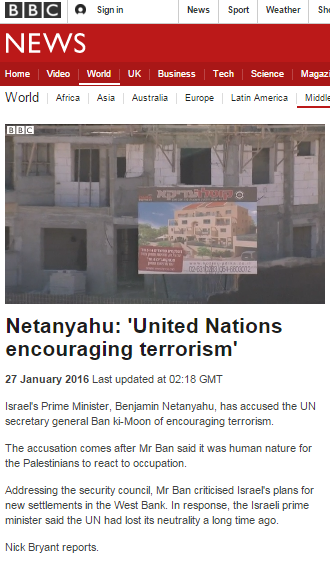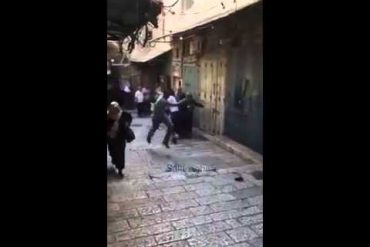Since the BBC began reporting on the ‘Great Return March’ violent rioting over seven months ago, BBC audiences have seen the grand total of one minute and twenty seconds of coverage reflecting the point of view of residents of the Israeli communities close to the Gaza Strip-Israel border who are affected by the violence.
A two and a half minute BBC News video on a story ignored for three months
That July 12th interview with one kibbutz spokesperson related solely to the subject of the arson attacks perpetrated by the Gaza Strip rioters and did not address additional issues such as the severe air pollution caused by months of tyre burning along the border or the rocket and mortar attacks on Israeli civilian communities.
Rocket and mortar attacks have of course not been limited to the past seven months: they commenced in 2001 and their numbers rose following Israel’s disengagement from the Gaza Strip in 2005.

This week a group of teenagers who have never known life without terrorists’ rocket and mortar attacks set off on a 90 kilometer walk to Jerusalem.
“High school students from villages and towns near the Gaza border began a protest march toward Jerusalem on Sunday to call attention to the rocket-battered region’s woes.
Over 100 students from grades 10-12 at Shaar Hanegev High School were taking part in the march, which began at the Sapir College campus in Sderot and is slated to last five days and stretch some 90 kilometers, part of it uphill, to Israel’s capital.
“We’re youth from the Gaza border region that decided to act,” 17-year-old Alon Levy, one of the march organizers, told the Haaretz daily. “We want to make our voices heard because we want to see a change. We want our younger siblings to be able to sleep quietly at night.”
Marchers will wear shirts that read “Let us grow up in peace.””
With BBC journalists having managed to make the less than one and half-hour trip from their Jerusalem office to an Israeli community in the Western Negev just once in the last seven months, one might have thought that the fact that some of the region’s residents had come to them would have prompted some coverage.
Unsurprisingly, given the corporation’s dismal record on informing its audiences of how Israeli civilians are affected by the violent rioting along the border and over eighteen years of rocket and mortar attacks by terror factions in the Gaza Strip, one would of course have been mistaken.




